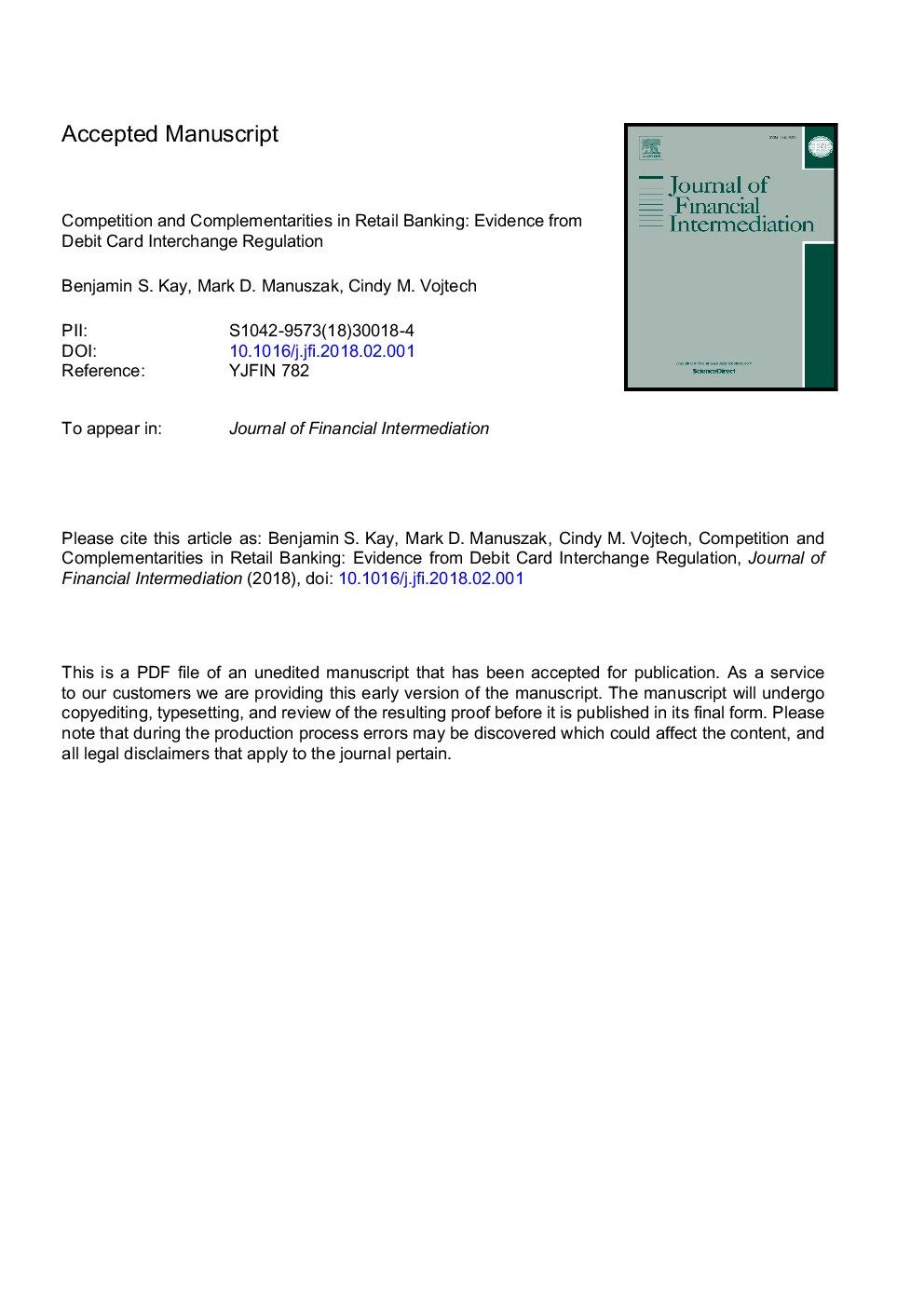| Article ID | Journal | Published Year | Pages | File Type |
|---|---|---|---|---|
| 7362258 | Journal of Financial Intermediation | 2018 | 54 Pages |
Abstract
Retail banking is a complex industry in which depository institutions bundle various services and may have market power. We use a recent regulation as a natural experiment to provide broad evidence about competition and the importance of bundling in retail banking. That regulation, which resulted from the Durbin Amendment to the Dodd-Frank Act, capped debit card interchange fees for banks with over $10 billion in assets. Using a difference-in-differences identification strategy, we document and quantify the resulting decline in interchange income for treated banks. We further find that treated banks offset more than 90% of the lost interchange income through increases in deposit fees for account holders. We argue that the ability to adjust deposit fees indicates (i) that treated banks have market power with respect to their account holders and (ii) strong complementarity between debit card transactions and deposit accounts. These results are robust when limiting the sample to banks near the asset threshold or using control banks with low direct competition with treated banks. Treated banks neither reduced costs nor strategically avoided the $10 billion threshold.
Related Topics
Social Sciences and Humanities
Business, Management and Accounting
Strategy and Management
Authors
Benjamin S. Kay, Mark D. Manuszak, Cindy M. Vojtech,
